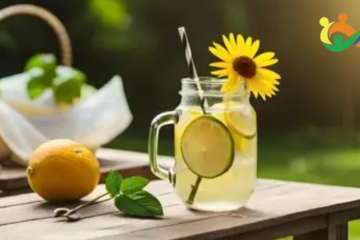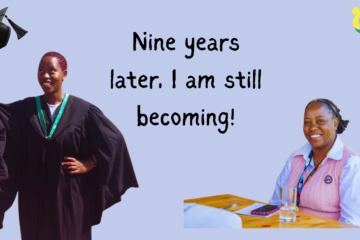Take a moment. Think about it. I’ll wait.
Now flip the question—how many able-bodied women do you see with paraplegic men?
See what I mean?
I’ve been observing this for a while now, and honestly, it stings. It stings because, as a disabled woman, I can’t help but wonder—are we simply not seen as desirable? Not seen as partners, as lovers, as wives?
I watch paraplegic men build beautiful relationships with able-bodied women, and while I celebrate their love, I can’t shake the feeling that the same grace isn’t extended to us. Society claps for the woman who chooses to be with a paraplegic man—she’s praised for her kindness, her selflessness, her strength. But when the roles are reversed? Silence. Skepticism. Doubt.
Why is it different for us?
The Double Standard in Love and Disability
Let’s be real. There is an unspoken but very present gendered double standard when it comes to disability and dating. A paraplegic man is often seen as a fighter, a warrior who, despite his circumstances, still holds his masculinity intact. An able-bodied woman dating him is almost saint-like. She is admired for looking past his disability, as if loving him is an act of charity rather than a genuine connection.
But a disabled woman? We don’t get the same narrative. We are pitied, not pursued.
We are expected to be strong, independent, resilient—but not soft, not desirable, not the object of someone’s affection. It’s almost as if our identities as women and as disabled people cannot coexist in the eyes of society. You can be disabled, or you can be feminine, but rarely both. And if you dare to seek love? Well, be prepared for disappointment.
Black Women and the ‘Strong’ Narrative
If you add race into the mix, the dynamic gets even more complicated. Black women—disabled or not—are already battling the “strong Black woman” trope. We are expected to endure, to carry, to uplift. We are not given the space to be vulnerable, to be desired without conditions, to be loved without proving our worth first.
A Black disabled woman? The world barely knows where to place us.
I have seen countless stories of disabled Black women who have been told outright that they are “too much to handle,” that their needs are “too complicated,” that dating them is “too much work.” And yet, I watch men in similar situations find partners who embrace them without hesitation. Why is that grace not extended to us?
What Hold Us Back?
There are myths—deeply ingrained and painfully persistent—that keep disabled women, especially Black disabled women, boxed into loneliness. Some of them include:
- “Men are visual creatures.” Translation: If you don’t fit the conventional beauty standard, your chances of being pursued shrink. And disability is rarely part of that standard.
- “A relationship should be easy.” Able-bodied men often assume that dating a disabled woman means added responsibility, inconvenience, or sacrifice. The idea that love requires work for everyone seems to escape them.
- “You should date within your kind.” People assume that disabled people should only date other disabled people, as if love is based on matching medical conditions rather than human connection.
- “Your life is already hard; why add dating stress?” Many of us are subtly (or explicitly) discouraged from seeking romantic relationships, as if we should just be grateful for whatever companionship we can get—family, friends, caregivers.
The Reality of Dating as a Black Disabled Woman
So what happens? We end up hiding parts of ourselves, dimming our desires, convincing ourselves that maybe we’re not meant for romantic love. We tell ourselves we are too independent to need it, too busy to pursue it, too fulfilled in other areas of life to miss it.
But let’s be honest—we do miss it.
We want love. We want to be chosen. We want to be flirted with, to be pursued, to be someone’s first choice. We want late-night conversations, forehead kisses, inside jokes that only make sense to us. We want what everyone else wants.
And we deserve it just as much.
So where do we go from here?
How do we start changing this narrative, not just for ourselves but for the young disabled girls growing up behind us?
- Representation matters. The more we see disabled women in relationships, in love, in media, the more society will begin to shift its perception. We need more stories, more visibility, more truth.
- Challenge the status quo. Call out the double standards when you see them. When someone praises a woman for dating a paraplegic man but questions a man for dating a disabled woman, ask them why.
- Own our desires. Stop shrinking ourselves to fit into the world’s narrow view of disability and femininity. We are not asking for pity—we are demanding our space in the world of love and relationships.
- Date without apology. We don’t have to justify our desire for love. We don’t have to “prove” our worth as partners. We exist, and that is enough.
Final Thoughts
I don’t have all the answers, and I don’t know if this will ever change in my lifetime. But what I do know is this: we are worthy of love, too.
Not as an act of charity. Not as an inspiration. Not as some grand sacrifice on someone else’s part.
Just as love. Simple. Honest. Real.
And until the world catches up to that truth, we’ll keep telling our stories. Because we are here, we are worthy, and we are more than enough.
To my fellow Black disabled queens—do you feel this too? Have you experienced this unspoken barrier in dating? Let’s talk. Our voices matter!



2 Comments
Jessica Herring · September 24, 2025 at 2:34 am
I absolutely agree that there is a problem
Jessica Herring · September 24, 2025 at 2:36 am
Let’s go